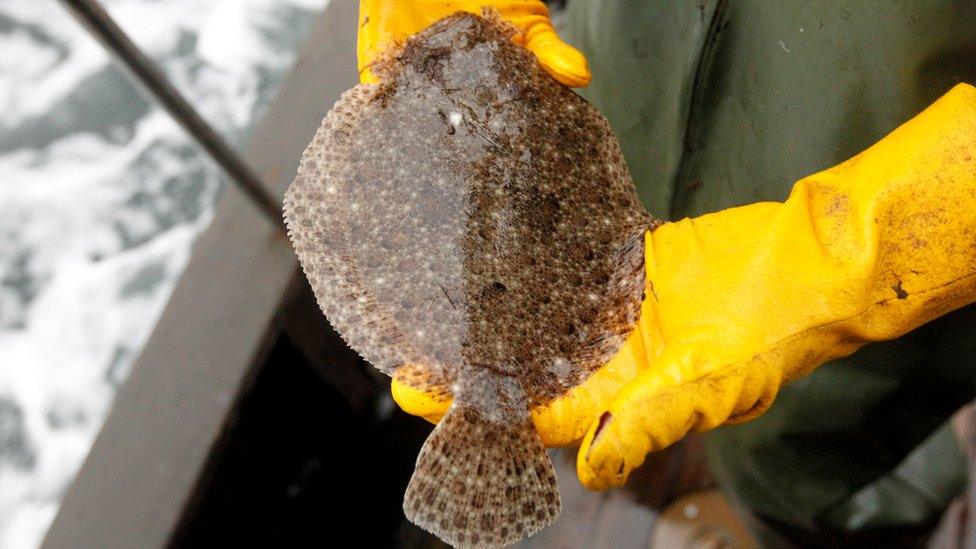Restaurant fish fraud not being caught, experts warn
- Published
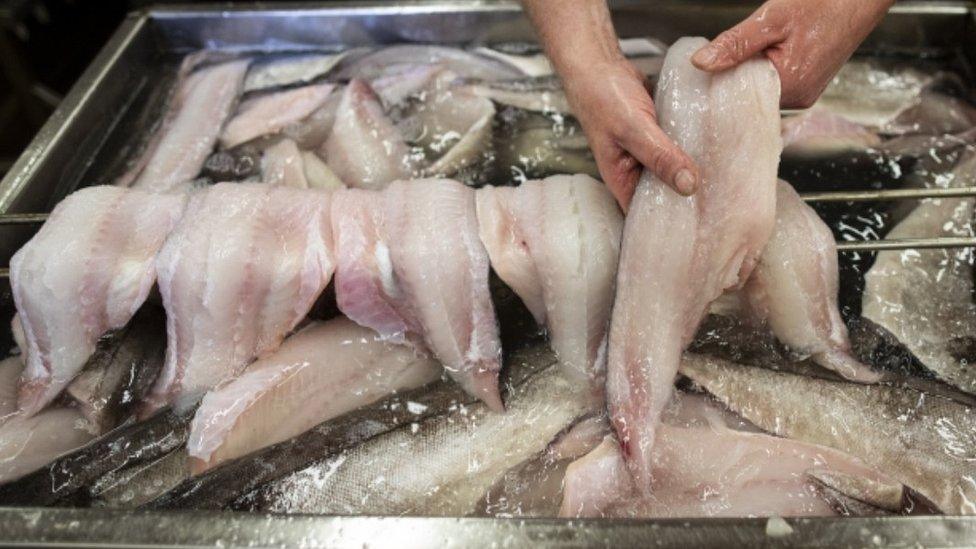
The number of fish samples submitted to the Food Standards Agency is significantly smaller than meat samples
Rogue restaurants think they can get away with passing off catfish as cod because there is so little testing of seafood, experts have warned.
"Fish fraud" sees cheaper fish being passed off or mislabelled as a more expensive type to boost profit margins.
In 2017, seven of the 91 fish samples submitted to the Food Standards Agency (FSA) in England, Wales and Northern Ireland were a cheaper substitute.
The number tested is far lower than the 665 meat samples submitted in 2017.
Once a fish is filleted, DNA testing is often the only way to prove what species it is, with the results submitted to the FSA by local authorities including examples of cod being substituted by catfish, whiting or haddock.
The FSA says local authorities "are responsible for developing and implementing their food sampling policy", which should take account of priorities set nationally.
Findings are recorded in the UK Food Surveillance System, which is a centralised database used to collect food test results and monitor trends in the food industry.
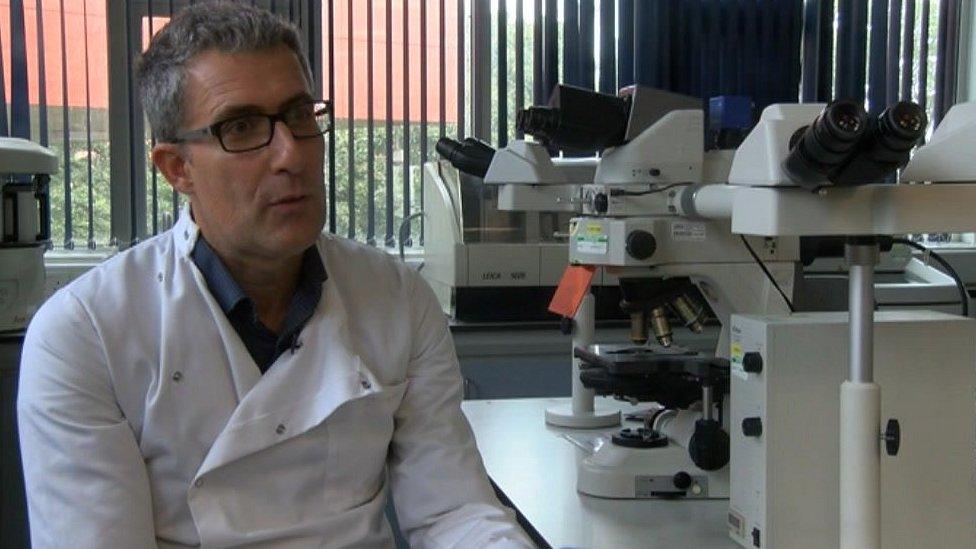
Prof Stefano Mariani says DNA sampling of fish is rarely done by local authorities
Stefano Mariani, professor of conservation genetics at the University of Salford, said testing was largely intelligence-led, so rogue businesses feel they can "get away with it".
"In general there's very little testing for authenticity and traceability - at county level they may decide other tests, for instance testing for potentially harmful bacteria, is more important," he said.
"No step of the supply chain is completely free [from risk of foul-play], that's why it's very important to invest in control, traceability and other means to minimise this problem."
Much like in the 2013 horsemeat scandal, eating cheaper fish does not present a health risk, but concerns have been raised about consumer deception.
Fish value increasing
All the 2017 fish samples found to be unsatisfactory were taken from small independent businesses such as restaurants and retailers.
Prof Mariani said the problem had largely been resolved in fish and chip shops because of tighter regulations, but other eateries were at risk, sometimes unwittingly.
"Restaurants and sushi bars don't have the same compliance requirements that a retailer has, so it's the place you're more likely to be duped," he said.
A 2016 FSA report, external suggested fraud relating to fish was most prominent in the North East of England - particularly around the major fishing ports at the mouth of the Humber.
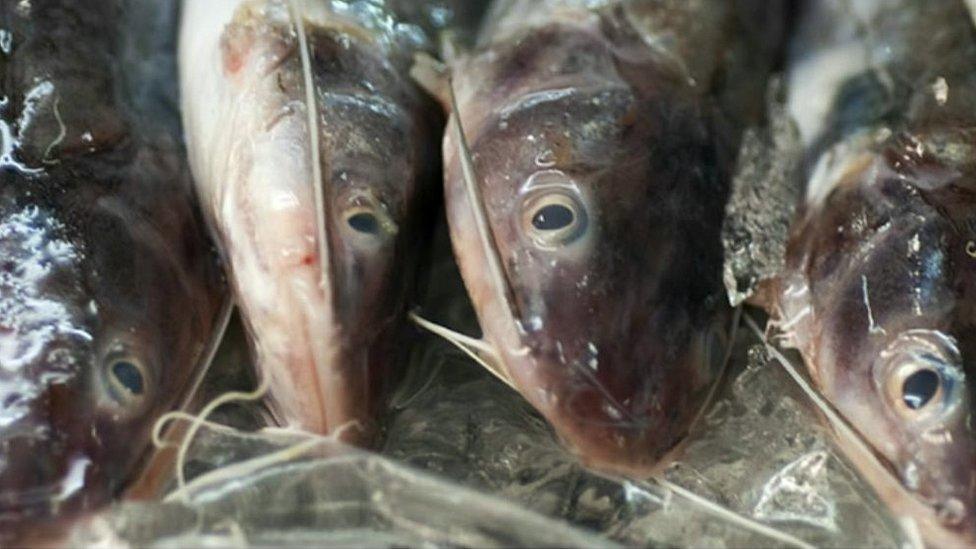
The FSA said it was working on a new approach to help support local authority sampling and analysis
Martyn Boyers, chief executive of Grimsby Fish Market, said: "Since the Brexit vote, we've seen an increase in the value of white fish.
"The issues will be about the change in the pricing and that in itself could lead to people trying to take shortcuts."
He added: "If stuff is mislabelled and when it's frozen, I'd defy anybody to tell me what the fish is when it's in its filleted state - skinless, boneless and in a block."
The failure rate of fish samples has remained fairly consistent, with 7.6% unsatisfactory in 2017, 6.7% in 2016 and 9.3% in 2015.
You may also be interested in:
Mark Drummond, who runs an award-winning fish and chip shop near Bradford, said: "To some extent it tars everybody in the industry with the same brush because there's a few trying to defraud the system.
"Regulators are stretched so there isn't a vast amount of testing done."
In a statement, the FSA said: "While sampling is a key part of a local authority's approach to delivering official controls, it is only one tool available to check compliance in this area, which include inspections, invoice checks, menu checks and physical checks of the products and labels.
"We're developing a new strategic surveillance approach which will give us more data and intelligence, allowing us to support LAs to plan their own sampling and analysis to be more targeted and effective."
You can see more on this story on BBC Inside Out Yorkshire and Lincolnshire at 19:30 BST on BBC One on Monday 15 October or via iPlayer afterwards.
- Published10 October 2018
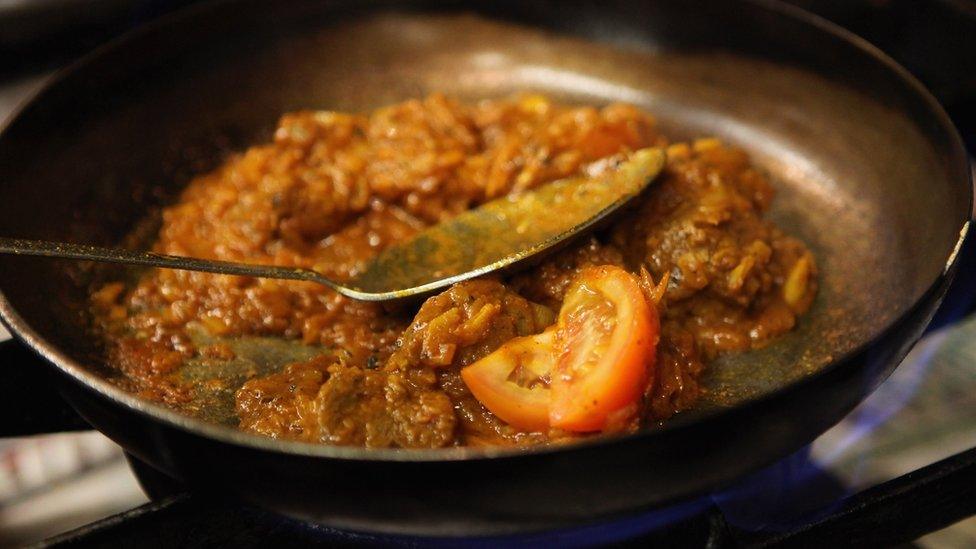
- Published16 January 2018
